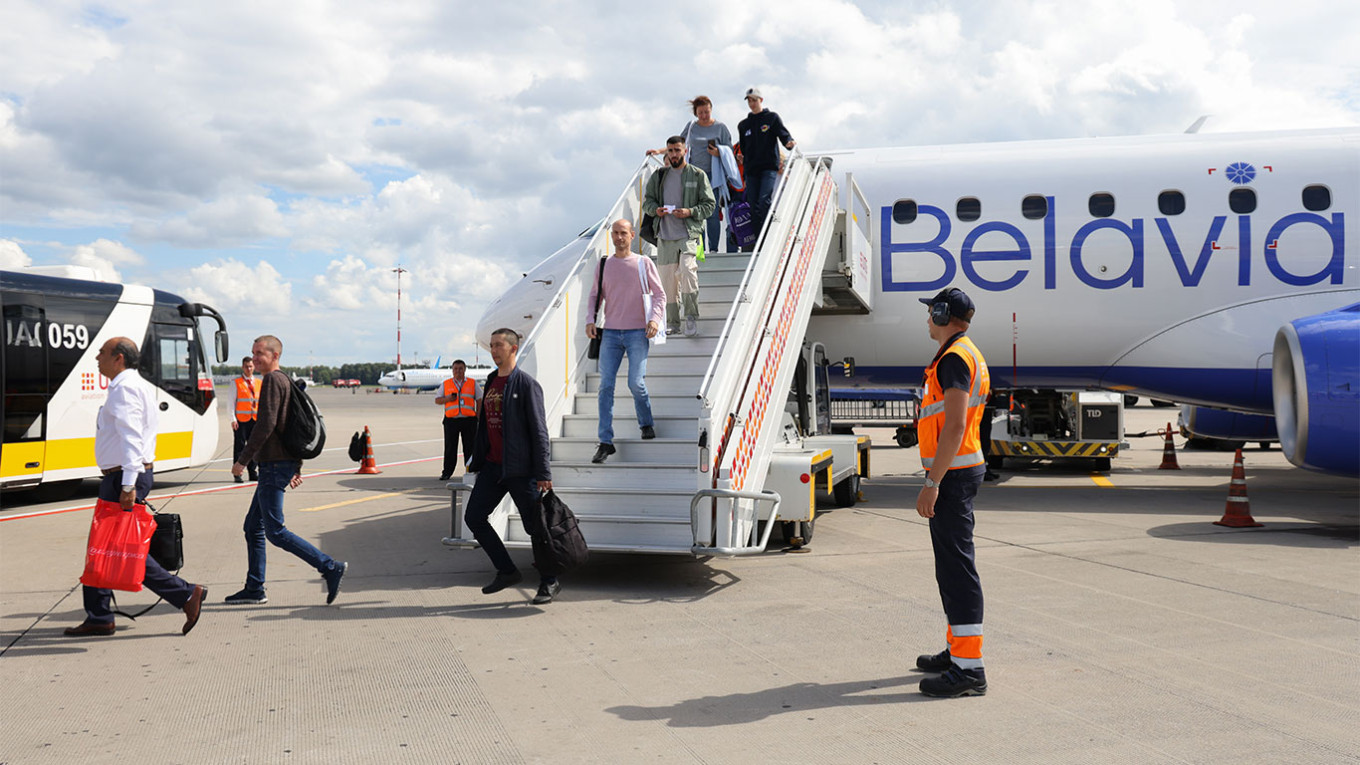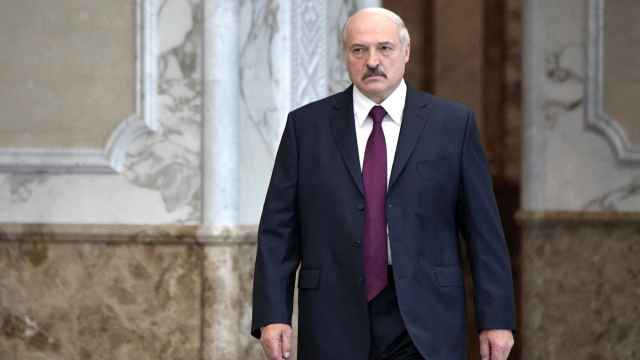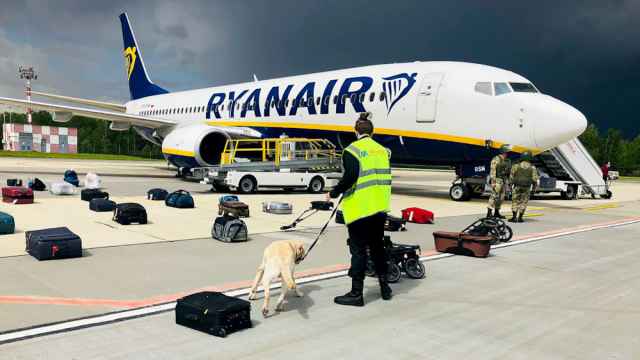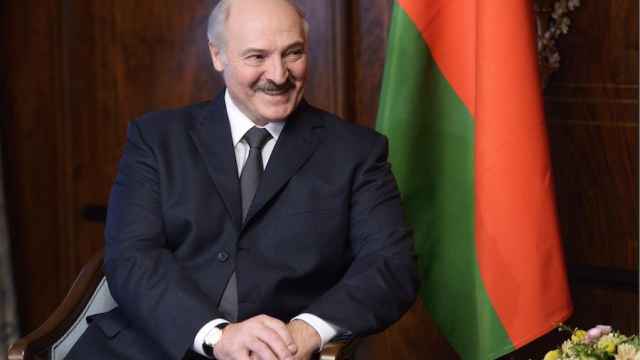A growing number of Russians are choosing neighboring Belarus for their next vacation in a bid to access Western goods and financial services no longer available at home because of sanctions imposed on Moscow over the invasion of Ukraine.
Unlike Russia, most foreign retailers and major payment companies retain a presence in ex-Soviet Belarus that is often dubbed the “last dictatorship in Europe.”
“Brands like H&M, Bershka and Pull & Bear left Russia but we [who travel to Belarus] can dress in them from head to toe,” said Yelena Shitikova, an executive at Arkhangelsk region travel agency Family Travel, which offers tours to Belarus.
“Everything there is working, there are no sanctions,” she added.
With multiple daily flights and trains between Moscow and Minsk, Belarus has become an increasingly popular destination for Russians looking to buy Western goods or open a bank account that will issue Visa or MasterCard debit cards no longer available in Russia.
Ruled by close Kremlin ally Alexander Lukashenko, Belarus has been used as a staging area for Russian troops and missile launchers during the invasion of Ukraine. But — despite concerns voiced by Kyiv — Lukashenko has denied the Belarusian military has crossed into Ukrainian territory, allowing Minsk to avoid the most severe Western sanctions. –
There has been a more than 60% increase in bookings of tours to Belarus, Anna Ovsyanikina, who handles Belarus bookings for tour agency Delfin, was quoted as saying by the Association of Tour Operators in Russia last month.
Tour agency FUN&SUN launched four-day shopping tours to Belarusian capital Minsk priced from 16,750 rubles ($279) per person at the end of August.
“Tourists started going to Belarus more often and we also noticed that they are going shopping among other things, so we decided to offer this product,” a spokesperson for FUN&SUN told The Moscow Times.
“The demand was very high for the first trip and for the subsequent ones as well.”
Travel agent Shitikova said she fell in love with Belarus after visiting earlier this year.
Upon her return to Russia, she noticed an “unexpectedly high” demand for travel to the country and decided to offer special tours to her agency’s clients.
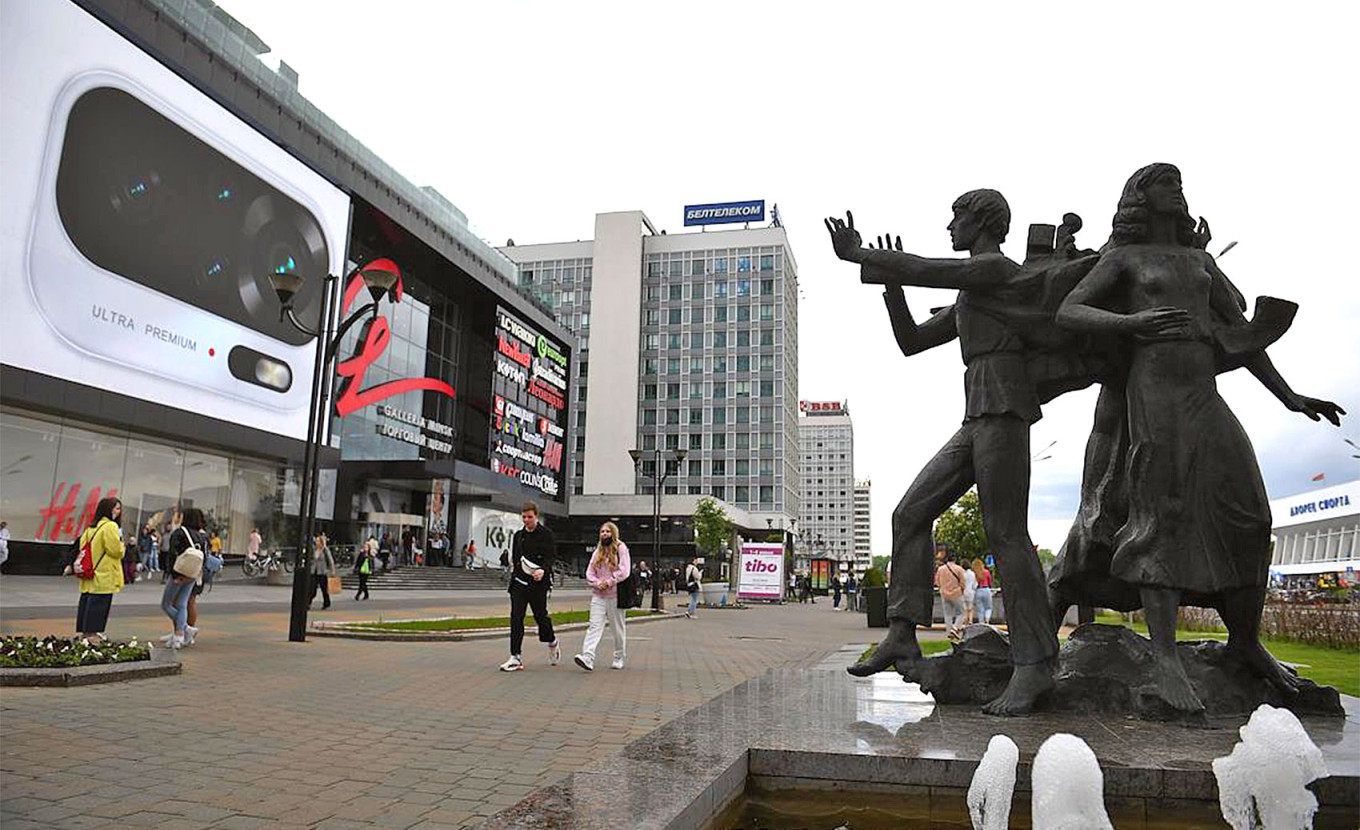
“Everything came together [with Belarus]: no language barrier, the chance for an excellent shopping experience and to enjoy clean, beautiful sights,” she told The Moscow Times.
“There are no problems, excellent food and I also think it’s a very affordable destination.”
More than 1,200 foreign businesses have completely withdrawn or limited their operations on the Russian market since the start of the war in Ukraine in February, according to data compiled by Yale University School of Management, making it much harder to obtain many Western goods.
Among those companies are the world’s largest fast fashion and luxury retailers whose closure left malls across Russia with rows of empty stores.
FUN&SUN’s clients traveling to Belarus can satisfy their itch for foreign brands by spending an entire day at Minsk’s malls where brands such as ZARA, Massimo Dutti, Calvin Klein and Levis are widely available, according to an itinerary for the company’s Belarus shopping tours seen by The Moscow Times.
The other appeal of holidaying in Belarus for some Russians is the option of opening a local bank account that will issue Visa and Mastercard bank cards.
After the international payment companies exited the Russian market in protest against the invasion of Ukraine, Russians can no longer make purchases on foreign websites or use their cards abroad.
The number of payment card applications made by Russian citizens at Belarusbank, the country’s largest bank, increased more than 50 percent in the first four months of the war, according to information published by news portal Office Life.
Tourists on a shopping tour with FUN&SUN can open a Belarusian bank account on the first day of their visit right after a welcome cocktail reception at the four-star Minsk Hotel in the heart of the Belarusian capital, according to the official itinerary.
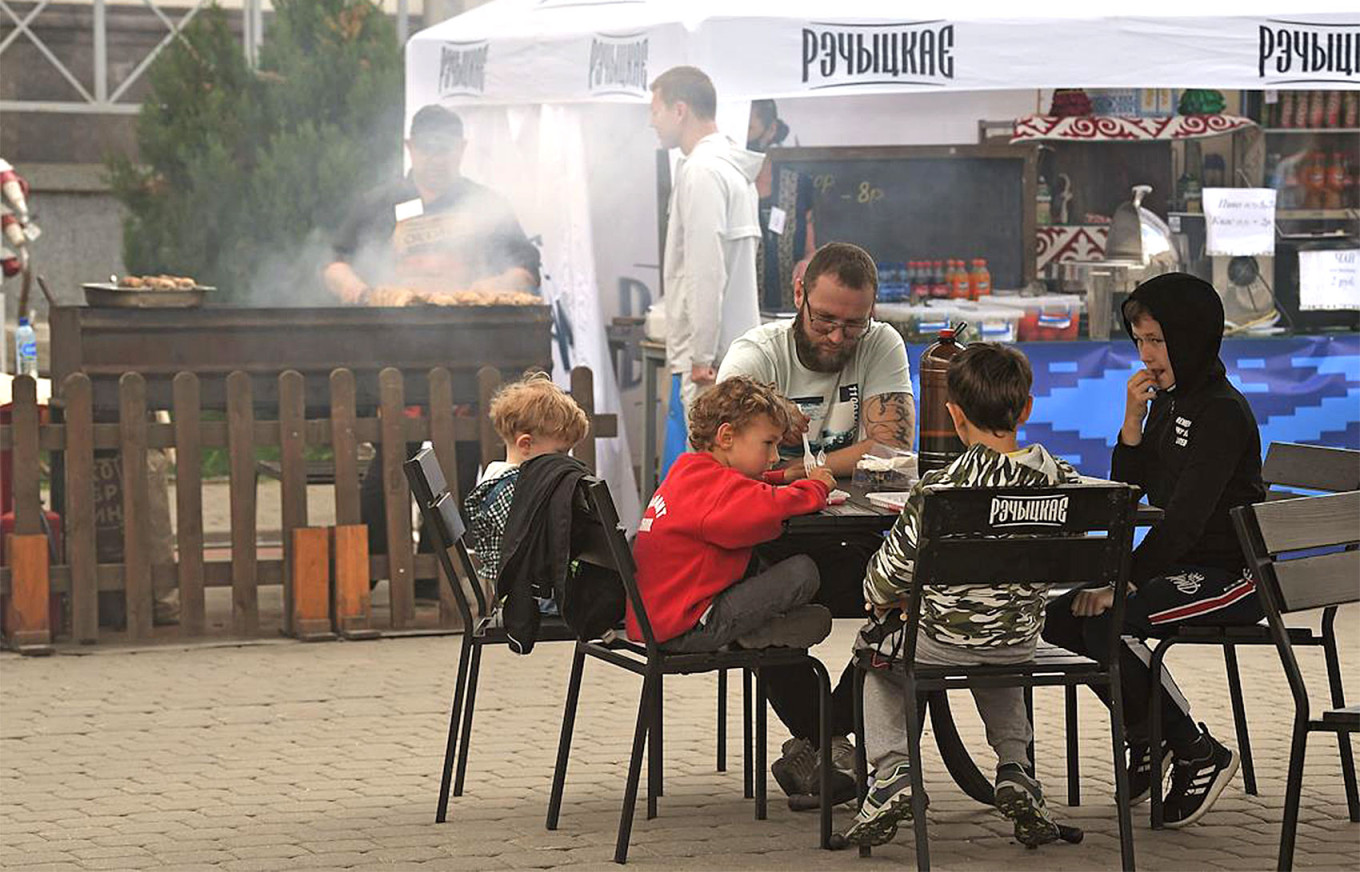
The Visa or Mastercard debit card can be picked up two days later.
But some Russians have found that it is harder to open a bank account in Belarus.
“My friends and I were looking into opening a bank account but it seems like we were not the first to come up with this ‘genius’ idea and the banks have introduced restrictions,” said Denis, a 33-year-old product manager from Moscow who recently visited Belarus.
Among the requirements of Belarusian banks are a local phone number and a permanent minimum account balance of at least 30,000 rubles ($500), according to Denis, who declined to give his surname for safety reasons.
“We decided not to open the accounts in the end because [Russian payment system] Mir mostly works in Belarus anyway. If we end up making it to Turkey for vacation this year we’ll just use cash,” he told The Moscow Times.
Belarus is not the only country that is attracting Russians looking to combine leisure travel with opening a foreign bank account.
Other popular destinations for so-called “banking tourism” are Armenia, Kazakhstan, Uzbekistan and Turkey.
The first organized “banking tour” titled “For Visa to Uzbekistan” was introduced by the VEDI Group agency in March.
But travel agent Shitikova claimed that easily accessible Belarus has an untapped tourist potential even beyond that of bank cards, Western brands and the Soviet-era sanatorium with which the country is often associated by those who grew up under Communist rule.
“I don’t want the tourists who I work with to associate Belarus only with sanatoriums. It is an extremely beautiful country that I personally want to keep coming back to,” she said.
A Message from The Moscow Times:
Dear readers,
We are facing unprecedented challenges. Russia's Prosecutor General's Office has designated The Moscow Times as an "undesirable" organization, criminalizing our work and putting our staff at risk of prosecution. This follows our earlier unjust labeling as a "foreign agent."
These actions are direct attempts to silence independent journalism in Russia. The authorities claim our work "discredits the decisions of the Russian leadership." We see things differently: we strive to provide accurate, unbiased reporting on Russia.
We, the journalists of The Moscow Times, refuse to be silenced. But to continue our work, we need your help.
Your support, no matter how small, makes a world of difference. If you can, please support us monthly starting from just $2. It's quick to set up, and every contribution makes a significant impact.
By supporting The Moscow Times, you're defending open, independent journalism in the face of repression. Thank you for standing with us.
Remind me later.



